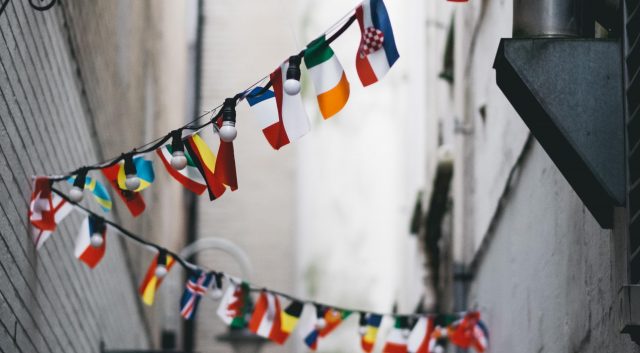Transcript:
One is this phrase i always say that “Sometimes you sing because you believe it and sometimes you sing UNTIL you believe it”. And i think there’s something really important about the declarative realignment of worship so we’re singing these things, especially when we’re singing scripture, we’re singing these things and it’s this prophetic imagination idea, this Brueggemann idea that we’re telling the story that is more true than the story that we’re actually living, and there’s something important about that. So it can feel like a dissonance because you can feel like this isn’t true, but actually you’re telling the story that should be true, you’re telling the story that WILL be true. So you’re actually, sometimes you’re singing it because you believe it, and then some days you’re singing it until you believe it. And I think both are okay. And both are necessary, and that’s important to remember as a worship leader, is to say this might feel like there’s a dissonance here because this is not how were living but this is how we’re going to be living, this is what God says about the world and it’s true. So i think there’s some of that and the other thing is there’s this brilliant little video with Bono and Eugene Peterson, if you haven’t seen it, and they talk about the Psalms and Bono basically says “when are the Christian worship leaders gonna start singing the truth?”
And I thought that was a really powerful thing, to actually start telling the truth in our songs.
I think the Vineyard has done a fantastic job at this actually and I think one of the great strenghtsof your denomination is you have brought language and music and worship to real life and I think it’s been a beautiful gift to the church so I am super honoured for that reason about the Vineyard. But I thought it really resonated with me because we actually do have to put into language the cry of the oppressed, not just the sort of Brueggemann picture of the answer. Some of the richness of those Psalms to say “you know, life is ****, where are you God?” and just to hang out there for a while. And I think that’s important too because we need language and songs of lament but like real life stuff where we’re telling the truth and we’re safe to cry out to God, and that’s part of justice.
I’ve found that when I’m serving with the poor and when we’re having prayer meetings with the poor, that’s coming out naturally and if you’re having worship that is totally removed from any angst it means you’re probably not doing justice, you probably don’t know anyone oppressed because when you know people are oppressed that just naturally comes in your worship because you’re expressing your heart to God and your heart’s broken, so I think both of those things are true at the same time.










